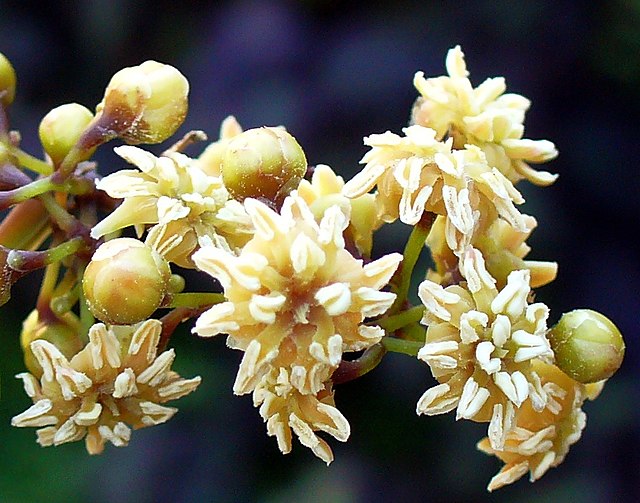Amborella is a monotypic genus of understory shrubs or small trees endemic to the main island, Grande Terre, of New Caledonia in the southwest Pacific Ocean. The genus is the only member of the family Amborellaceae and the order Amborellales and contains a single species, Amborella trichopoda. Amborella is of great interest to plant systematists because molecular phylogenetic analyses consistently place it as the sister group to all other flowering plants, meaning it was the earliest group to evolve separately from all other flowering plants.
Amborella
Specimen in Berkeley, California
Young leaves
Buds and staminate (male) flowers
In biology, a monotypic taxon is a taxonomic group (taxon) that contains only one immediately subordinate taxon. A monotypic species is one that does not include subspecies or smaller, infraspecific taxa. In the case of genera, the term "unispecific" or "monospecific" is sometimes preferred. In botanical nomenclature, a monotypic genus is a genus in the special case where a genus and a single species are simultaneously described. In contrast, an oligotypic taxon contains more than one but only a very few subordinate taxa.
In the order Amborellales, there is only one family, Amborellaceae and there is only one genus, Amborella, and in this genus there is only one species, namely Amborella trichopoda.
Beluga "kissing" a human trainer; both are monotypical in their genera.
The family Cephalotaceae has only one genus, Cephalotus, which contains only one species, Cephalotus follicularis, the Australian pitcher plant.






